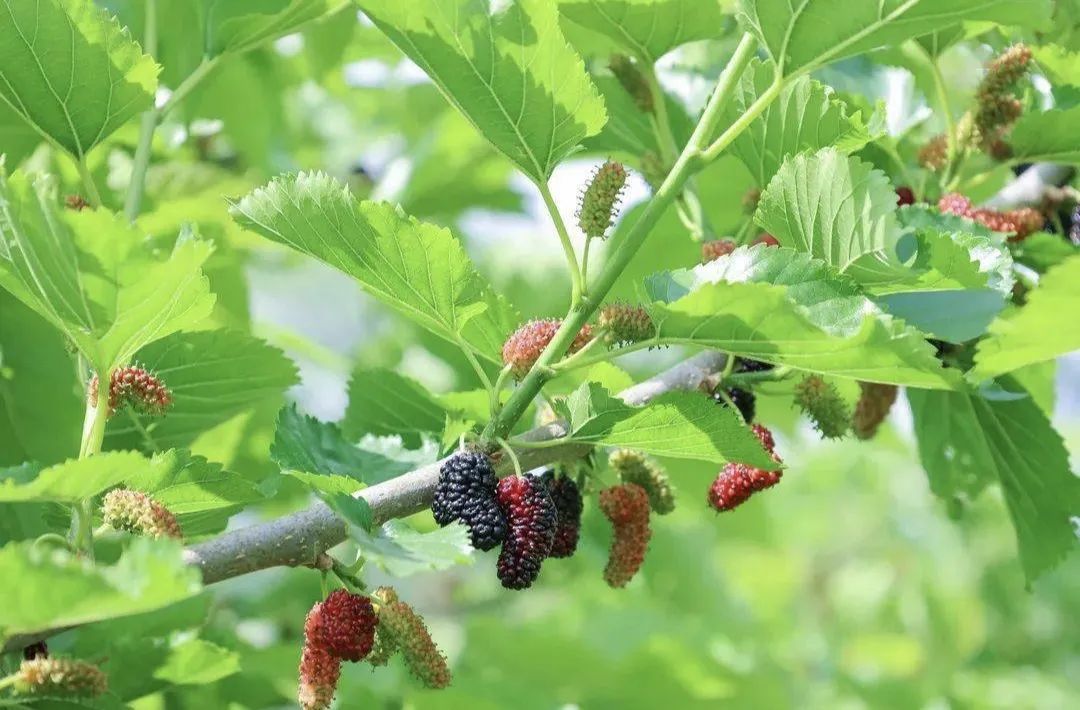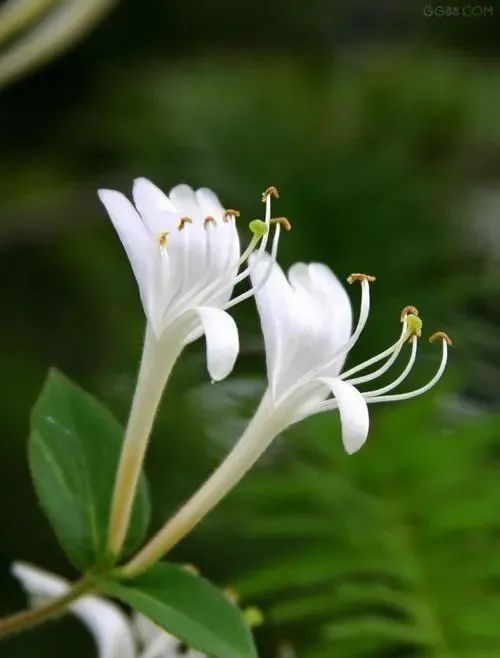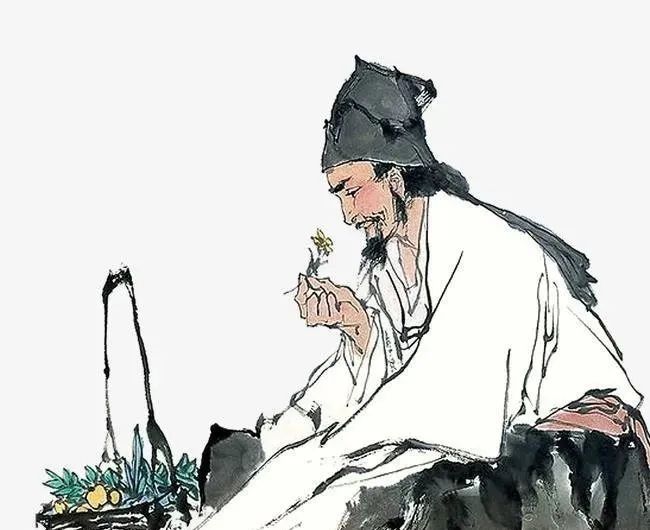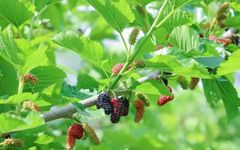Baicao Traditional Medicine

Learn a little every day, stay healthy every day
Dietary Remedies for Wind-Heat Cold in Traditional Chinese Medicine
Traditional Chinese Medicine is a treasure of the Chinese nation
Many experienced traditional Chinese medicine practitioners share their treasured remedies with everyone, hoping to help you!
Spread knowledge of Chinese medicine and promote TCM culture!

Dietary Remedies for Wind-Heat Cold in Traditional Chinese Medicine
Wind-Heat Cold is a common illness in summer, often referred to as “heat cold”. The symptoms of Wind-Heat Cold mainly include dizziness, runny nose, dry throat, and sneezing. How can we treat heat cold? Can dietary remedies be used for treatment? Here are 5 dietary remedies for Wind-Heat Cold in TCM. However, it is important to note that TCM dietary remedies are only supplementary.
1. Sang Ye Bo He Yin (Mulberry Leaf and Mint Drink)
Sang Ye (Sang Ye) 5g, Ju Hua (Chrysanthemum) 5g, Bo He (Mint) 3g, Ku Zhu Ye (Bitter Bamboo Leaf) 30g.
Preparation: Wash the herbs with clean water, place them in a teapot, and steep in boiling water for ten minutes. Drink at any time.
Efficacy: This remedy has a cooling and dispersing effect for Wind-Heat Cold and can also be consumed as a preventive tea.
2. Yin Hua Bo He Yin (Honeysuckle and Mint Drink)
Yin Hua (Honeysuckle) 30g, Bo He (Mint) 10g, Fresh Lu Gen (Reed Root) 60g.
Preparation: First, boil Yin Hua and Lu Gen in 500ml of water for 15 minutes, then add Bo He and boil for another 3 minutes. Strain, add appropriate white sugar, and drink warm, 3-4 times a day.
Efficacy: This drink has a strong heat-clearing effect, suitable for those with Wind-Heat Cold presenting with fever, dry throat, and thirst.
3. Fen Ge Dou Chi Zhou (Pueraria and Fermented Soybean Porridge)
Fen Ge (Pueraria Root) 10g, Dan Dou Chi (Fermented Soybean) 10g, Green Onion (white part) 3 stalks (washed), Mai Dong (Ophiopogon) 10g, Jing Mi (Japonica Rice) 50g.
Preparation: Place Fen Ge, Dan Dou Chi, and Mai Dong in a clay pot with 500ml of water, boil for about 5-10 minutes, strain out the dregs, then add Jing Mi and cook into a thin porridge. Cut the green onion into short sections and add to the porridge when it is nearly done, stir well, and serve warm.
Efficacy: This porridge, containing Pueraria, Fermented Soybean, and Green Onion, disperses pathogens, while Mai Dong and Japonica Rice nourish yin and harmonize the stomach. It is a suitable dietary choice for Wind-Heat Cold.
4. Sang Ye Pi Pa Zhou (Mulberry Leaf and Loquat Porridge)
Sang Ye (Mulberry Leaf) 18g, Pi Pa Ye (Loquat Leaf) 10g, Gan Cao (Licorice) 100g, Sheng Mao Gen (Fresh Reed Root) 30g, Bo He (Mint) 6g, Jing Mi (Japonica Rice) 60g.
Preparation: Wash and chop the above herbs, add appropriate water, boil to extract the juice, then add Japonica Rice and cook until the rice blooms into a thick porridge. Serve hot. Take 1 dose daily for 3 days.
Efficacy: Sang Ye, Mao Gen, and Bo He clear heat and generate fluids, while Pi Pa Ye stops cough and Gan Cao and Jing Mi nourish fluids and benefit the stomach, suitable for patients with lung and stomach heat and Wind-Heat Cold.
5. Fa Huan Chi Zhou (Sweating Fermented Soybean Porridge)
Dan Dou Chi (Fermented Soybean) 20g, Jing Jie (Schizonepeta) 6g, Fang Feng (Siler) 6g, Shan Zhi Zi (Gardenia) 3g, Sheng Shi Gao (Gypsum) 60g, Sheng Jiang (Fresh Ginger) 3 slices, Green Onion (white part) 2 stalks, Jing Mi (Japonica Rice) 100g.
Preparation: First, boil the above herbs in a clay pot for about 5-10 minutes, strain out the dregs, then add Japonica Rice and cook into a thin porridge.
Efficacy: This formula primarily has a cooling and heat-dispelling effect, suitable for patients with severe Wind-Heat, high fever, headache without sweating, dry throat, thirst, and a floating, rapid pulse, with significant efficacy.

Recommended Reading
Various Skin Issues·····Special Herbal Formulas 【Baicao Ointment】
The Culture of Traditional Chinese Medicine is Profound and Extensive
Traditional Chinese Medicine speaks of Yin and Yang; without Yin, there is no life; without Yang, there is no growth. Where there is Yin, there is Yang; where there is up, there is down; where there is front, there is back; one thing controls another; no substance exists in isolation or without constraints! Maintaining the balance of the entire universe, each dimension has its own very strict system of checks and balances! Therefore, every disease will inevitably have a corresponding remedy or method to subdue it!

Disclaimer: This article shares information from the internet and published materials. If there is any infringement, please contact for removal. The remedies mentioned are for reference and learning by professionals only and should not be considered as medical prescriptions or guidance. This platform does not bear any responsibility for any consequences arising from this!

